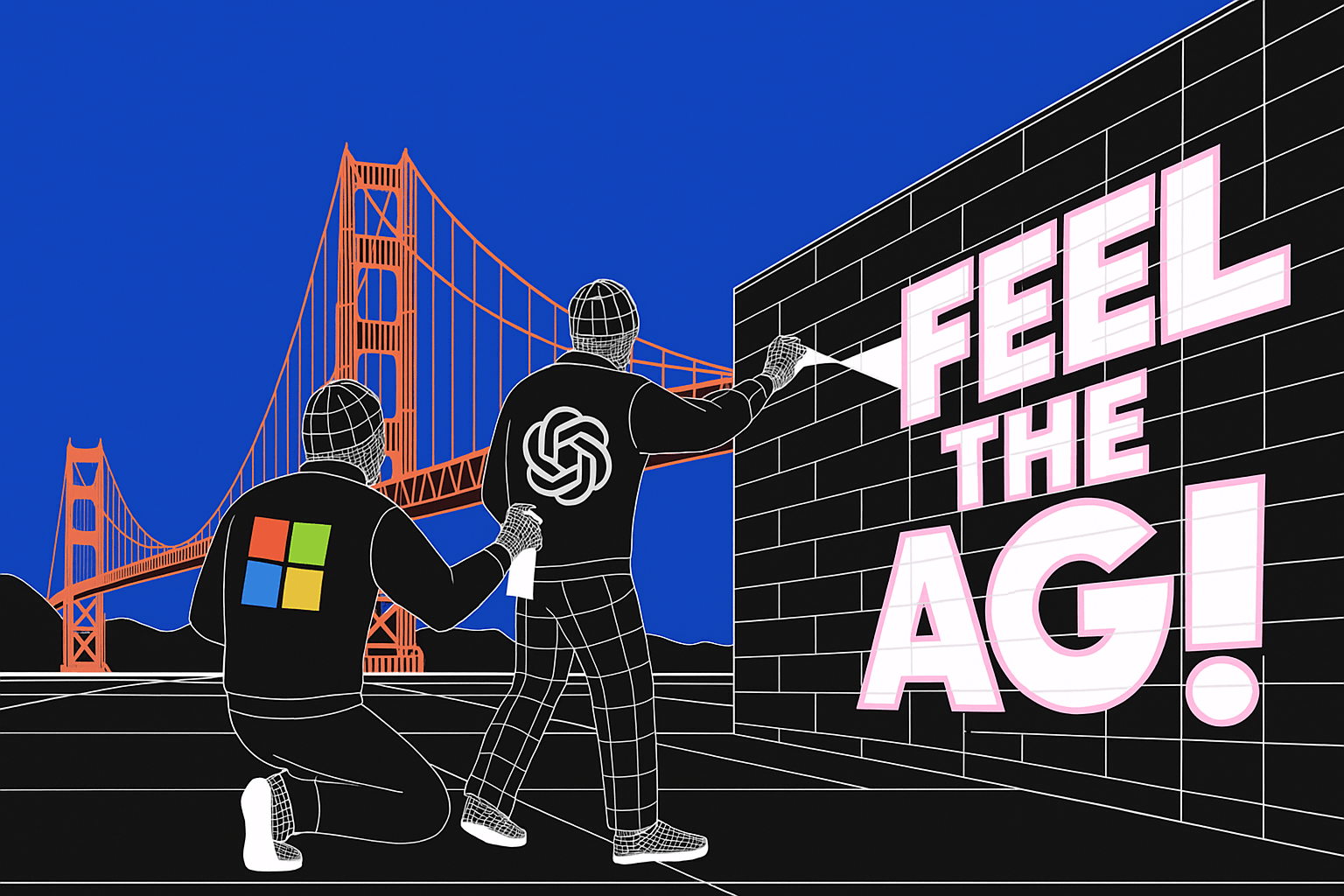OpenAI and Microsoft call AGI pointless, then make it the linchpin of billion-dollar deals

Last week, Microsoft and OpenAI announced their plan to determine when they have achieved artificial general intelligence (AGI) and then assemble a panel of experts to confirm it.
But the details are murky. There's no clear definition of AGI, no information about what criteria the panel would use, and no indication of who would be on it. There are no public standards, no independent oversight, and no transparency. In the end, the companies with the most at stake—both contractually and financially—are the ones making the call.
Billions ride on shifting definitions
A recent exchange between OpenAI CEO Sam Altman and Chief Scientist Jakub Pachocki shows just how unsettled things remain. Both say they want to develop a fully autonomous AI researcher by March 2028 and explain that they will "define what that means" at that point, rather than try to "satisfy everyone with a definition of AGI."
In effect, Altman shifts the debate from an abstract definition to any performance goal he chooses, leaving it deliberately vague whether such a researcher would even count as AGI by OpenAI's own standards.
Just a few months earlier, in August, Altman called AGI "not a super useful term", yet it seems like it is still useful enough to anchor multi-billion-dollar deals with Microsoft. The irony goes further: in a February podcast, Microsoft CEO Satya Nadella said, "For us to attribute some AGI milestone to ourselves, to me that's just nonsensical benchmark hacking."
If that's not confusing enough, OpenAI published a blog post in March 2025 that explicitly moves away from the idea of AGI as a single, definable milestone. Now, "the first AGI" is just one point along a continuous path toward more powerful AI.
"We used to view the development of AGI as a discontinuous moment when our AI systems would transform from solving toy problems to world-changing ones. We now view the first AGI as just one point along a series of systems of increasing usefulness."
Even so, the latest Microsoft contract ties major financial and intellectual property decisions to a single event: OpenAI "declaring" AGI. The gradual, safety-focused approach is replaced by a binary switch.
At this point it seems like Microsoft and OpenAI's supposed AGI milestone is mostly smoke and mirrors, especially given how central AGI is to their business and the billions at stake. For anyone already skeptical of the AGI hype, this self-serving and opaque process only fuels further distrust.
AI News Without the Hype – Curated by Humans
As a THE DECODER subscriber, you get ad-free reading, our weekly AI newsletter, the exclusive "AI Radar" Frontier Report 6× per year, access to comments, and our complete archive.
Subscribe nowAI news without the hype
Curated by humans.
- Over 20 percent launch discount.
- Read without distractions – no Google ads.
- Access to comments and community discussions.
- Weekly AI newsletter.
- 6 times a year: “AI Radar” – deep dives on key AI topics.
- Up to 25 % off on KI Pro online events.
- Access to our full ten-year archive.
- Get the latest AI news from The Decoder.